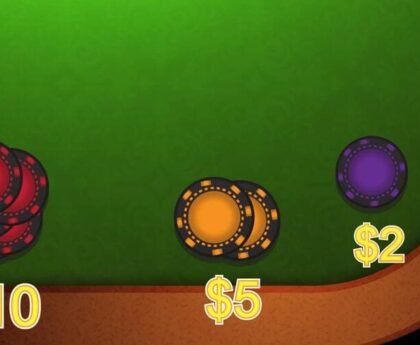How to deal in poker is an important skill for a dealer to have, whether they are playing at home with friends or working professionally at a casino or card room. There are many different variations of poker, and each one has its own rules and procedures for dealing cards. Learning how to deal well can help a player win more hands and make more money.
The first step in dealing is to thoroughly shuffle the deck. This is done by cutting the deck in half, placing both halves next to each other, and riffling the corners of each half so they intermix. This should be repeated six or seven times to ensure the deck is shuffled thoroughly. Having an improperly shuffled deck can lead to accusations of cheating, so it is best to be safe than sorry.
Next, the dealer should move and monitor the button. This is the spot on the table that players place their chips in before each hand, and it is important for a dealer to be able to accurately track this position. This will allow them to keep the order of the hands consistent and avoid confusion.
It is important for a dealer to be a good listener, as they will need to hear from every player at the table. If a player has a question about the rules of a particular hand, it is the dealer’s responsibility to answer that question in a polite and clear manner. If the dealer is unsure of the answer, they should rephrase their question and seek clarification from another member of the staff.
In addition, a dealer must be able to control the table and keep the players in line. If a player is acting inappropriately or not adhering to proper gameplay etiquette, it is the dealer’s job to warn them and call over a floor man to resolve the issue.
Another important aspect of dealing is knowing when to burn a card. If a card is exposed late in the deal, it should be taken and placed in the burn pile so that it does not interfere with the outcome of the hand. This is especially important if there are multiple cards exposed and the dealer does not want to restart the deal.
It is also important to have a strong understanding of the typical characteristics of a dealer. This includes knowing when to deal two hole cards and avoiding making any mistakes with the movement of the chips. Dealing mistakes can easily cause a hand to be declared dead, so it is essential for dealers to be precise with their actions. They should also be familiar with the rules governing misdeals, as they will need to know how to handle these situations in a professional and efficient way. They should also be aware that some players may attempt to share information about their hand through various signaling methods, which can range from placing chips on a card to Morse code tappings on the table.



